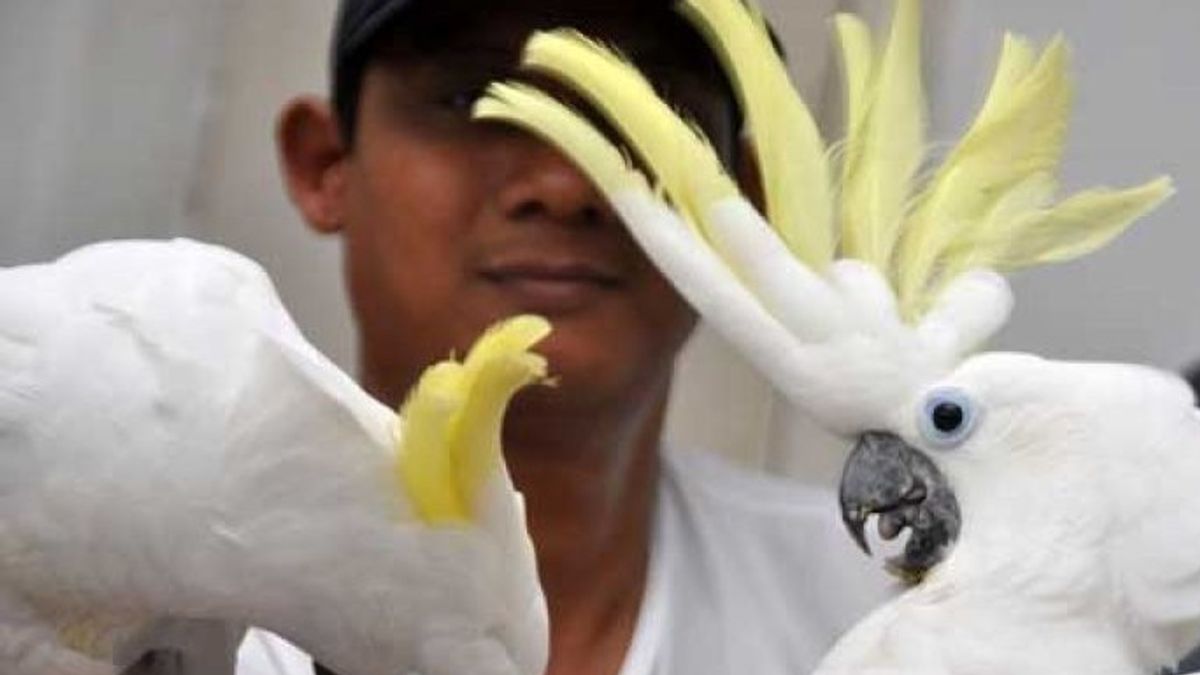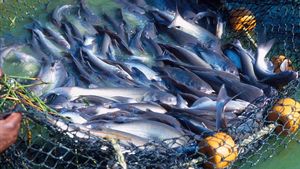PALU - The Natural Resources Conservation Agency (BKSDA) of Central Sulawesi (Sulteng) said the yellow-crested cockatoo is threatened with extinction, the population now remaining two or a pair on Pasoso Island, Balaesang District, Donggala Regency.
"There's only one pair left and you could say the yellow-crested cockatoo is endangered," said Head of the Central Sulawesi BKSDA, Hasmuni, in Palu, quoted by Antara, Wednesday, February 9.
Hasmuni said, one of the causes of the extinction of this protected animal is trade outside the Sulawesi area and even abroad.
"This is an endemic bird that lives in Sulawesi but more in Bali because maybe someone brought it there and eventually the population increased," said Hasmuni.
Currently, the government through the Central Sulawesi BKSDA has collaborated with the Faculty of Forestry at Tadulako University to increase the population of the yellow-crested cockatoo.
"We have signed the MoU and it's just a matter of formulating a strategy to save this population," he explained.
According to Hasmuni, saving the yellow-crested cockatoo population is the responsibility of all communities. In addition to protecting nature conservation, the community is asked not to trade in protected or endemic animals typical of Sulawesi that live in the forests of Central Sulawesi.
"This is our homework together, let's save the endemic typical of Sulawesi that still exists today," he explained.
In addition to saving the yellow-crested cockatoo population, BKSDA also seeks to increase the population of anoa and deer pigs as endangered and protected species.
Hasmuni said that now the number of anoa and deer pigs is decreasing, even these two endemic to Sulawesi are difficult to find in conservation areas.
"Nothing but because of hunting," he said.
According to Hasmuni, in addition to monitoring forest conservation areas, BKSDA and related parties also conduct outreach to people living in forest areas.
"We ask the community to take care of our animals together so they don't become extinct," he said.
"Stop hunting and let the endemic animals typical of Sulawesi that live in our forests develop so that the population continues to increase," said Hasmuni.
The English, Chinese, Japanese, Arabic, and French versions are automatically generated by the AI. So there may still be inaccuracies in translating, please always see Indonesian as our main language. (system supported by DigitalSiber.id)








